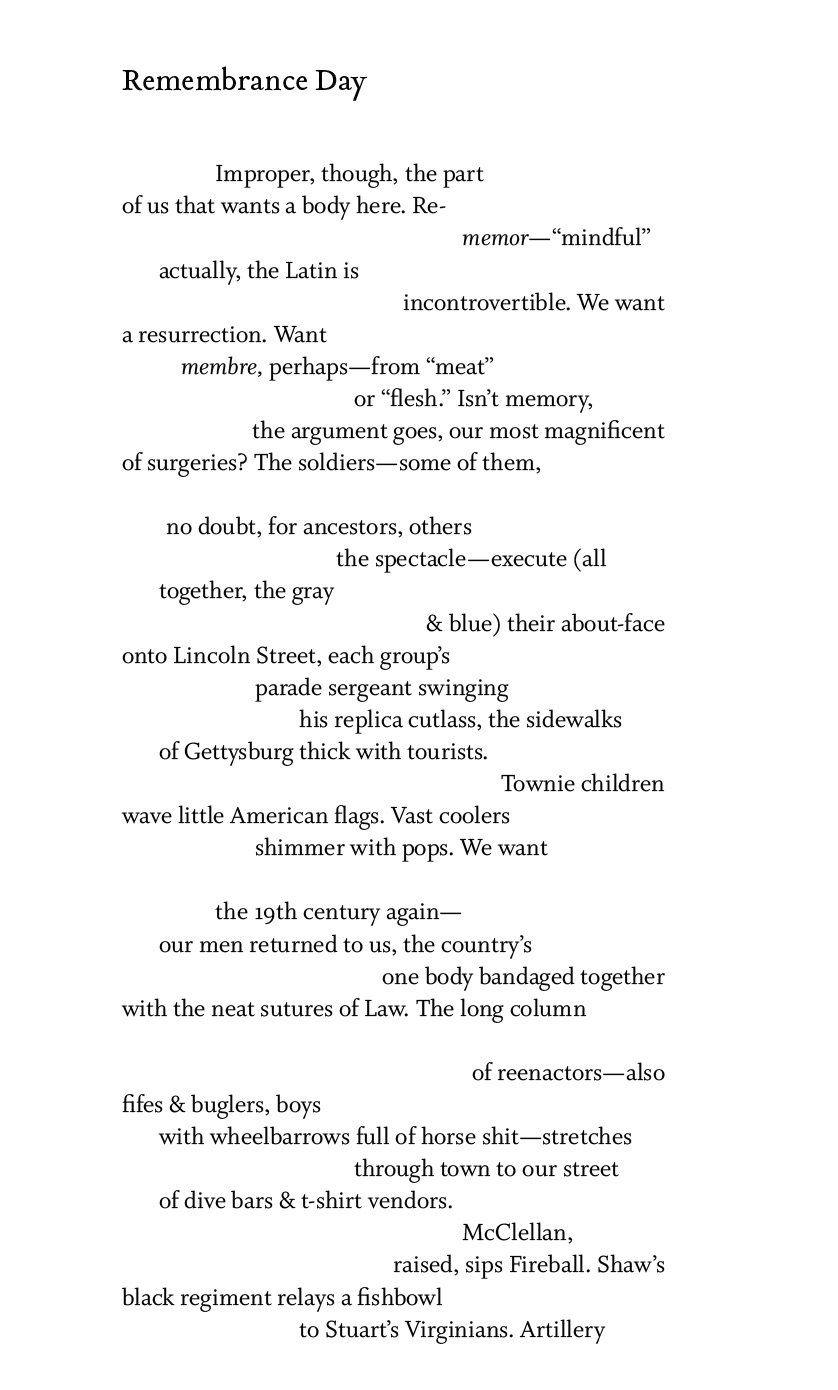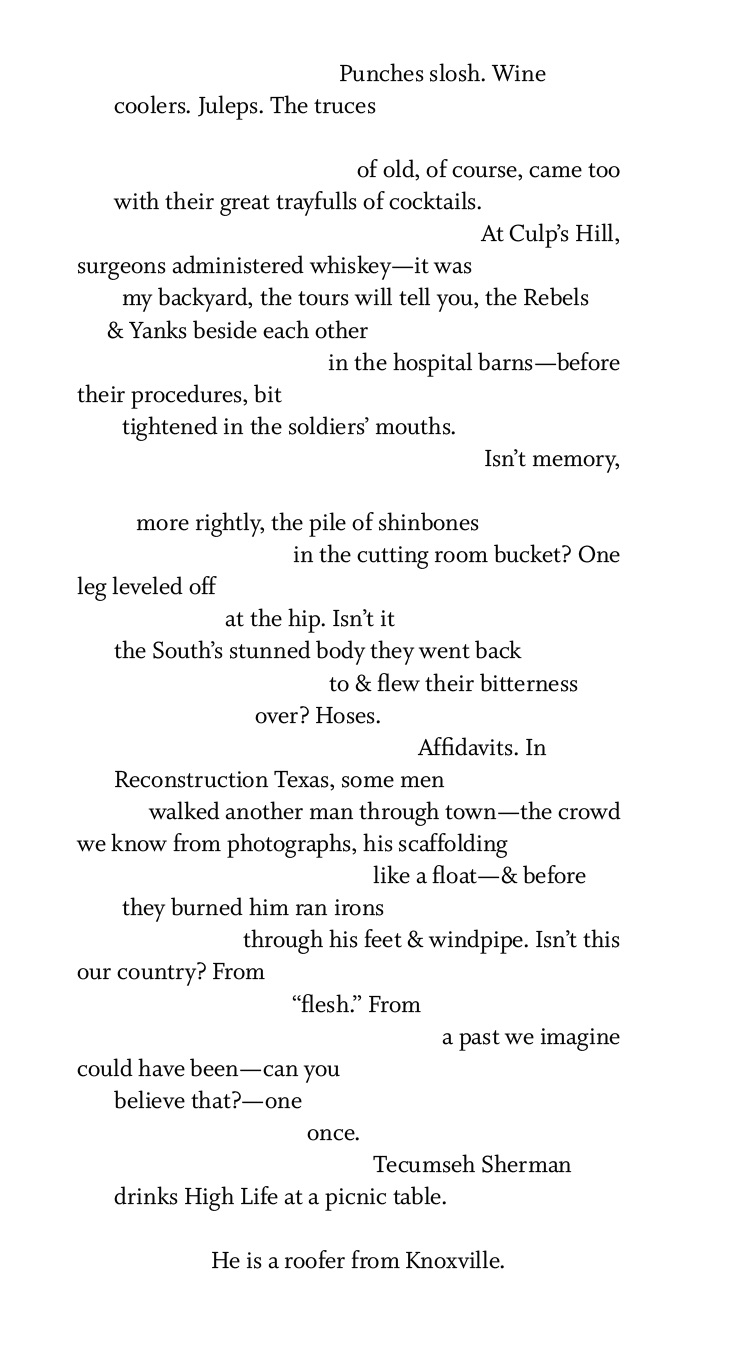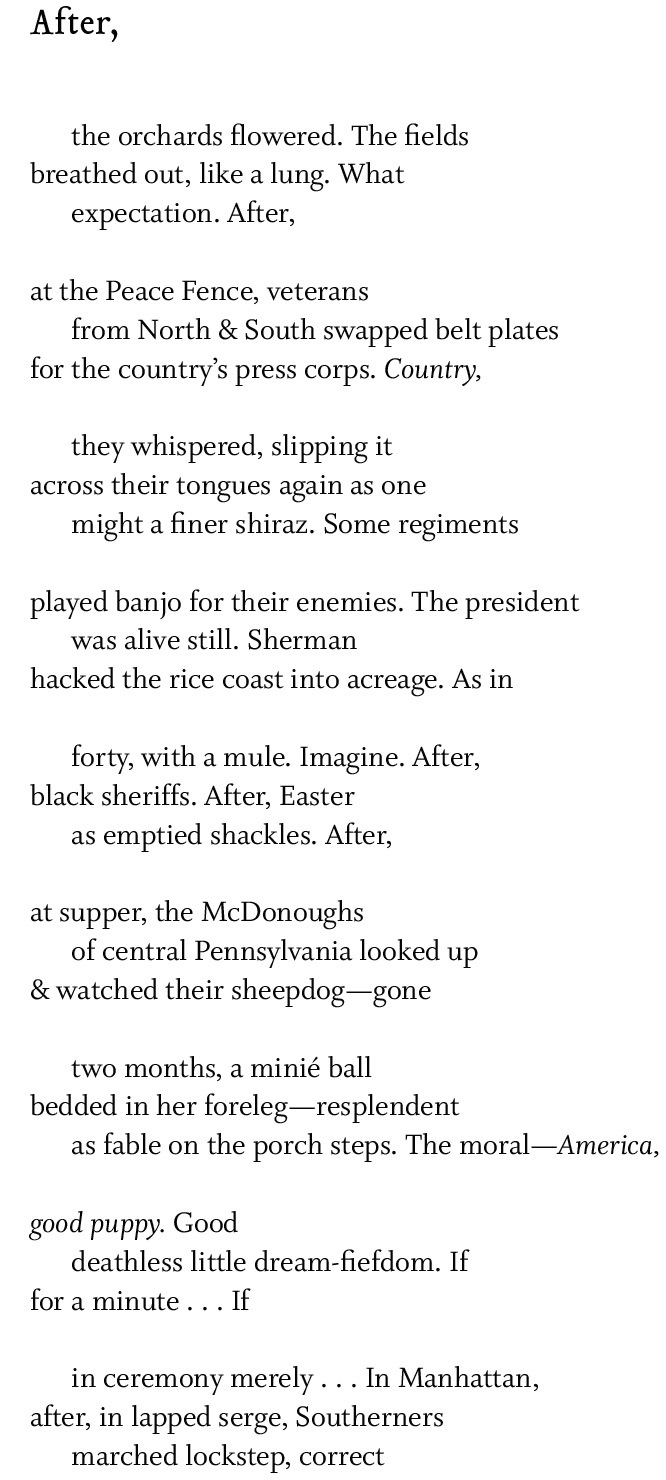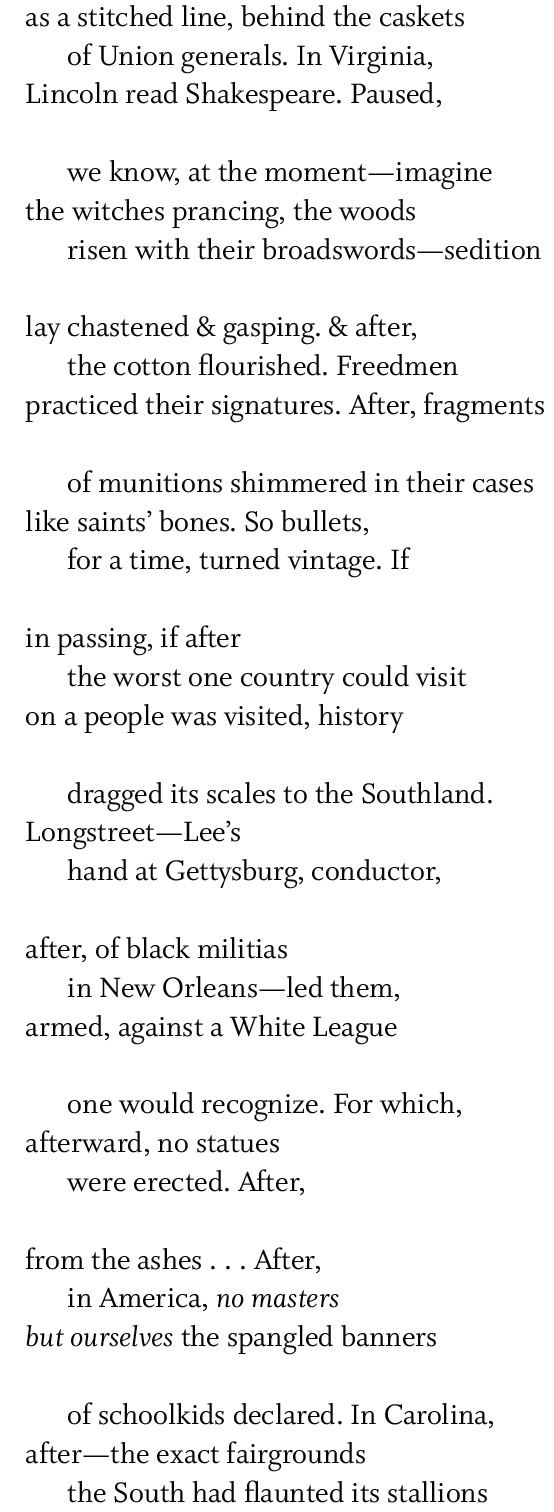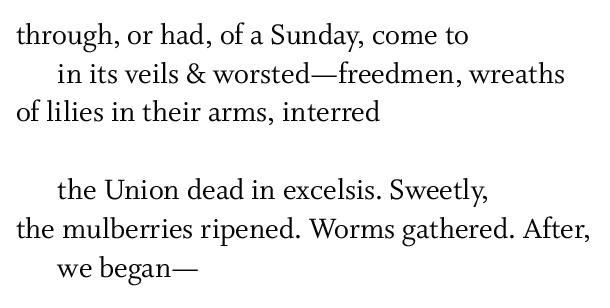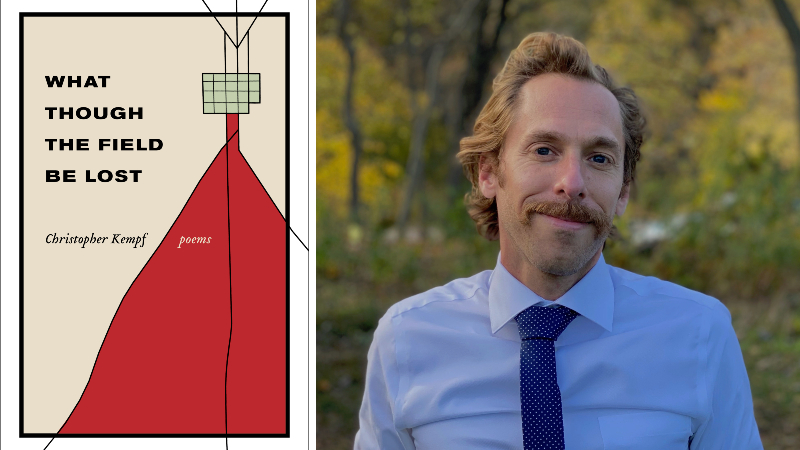
In this episode Niall Munro talks with Christopher Kempf about his new collection of poetry, What Though The Field Be Lost, published by Louisiana State University Press in 2021.
Chris’s first poetry collection, Late in the Empire of Men, won the 2015 Levis Prize from Four Way Books and was reviewed widely, including in The New York Times. His scholarly book, Craft Class: The Workshop in American Culture, is forthcoming from Johns Hopkins University Press.
Chris has been awarded a number of prizes and fellowships, including a Pushcart Prize, a National Endowment for the Arts Fellowship, and a Wallace Stegner Fellowship from Stanford University, and his poetry and creative nonfiction have appeared in many places, such as in Best American Poetry (2020), Boston Review, Gettysburg Review, The New Republic, and PEN America. His scholarship appears in American Literary History, English Literary History, and Modernism/modernity. Chris has a Ph.D. in English Literature from the University of Chicago, an MFA from Cornell University, and teaches in the MFA program at the University of Illinois.
What Though The Field Be Lost may be grounded in the Civil War battlefield of Gettysburg, Pennsylvania, but it doesn't just offer just a fascinating engagement with the soil and statues there. It is also a profound exploration of conflict and memory more broadly in the United States. Indeed, one of the most striking things about the book is the way in which it is so attentive to the complexities of history. As you’ll hear in this interview, it’s a book that seeks to challenge existing, sometimes nostalgic views of the war, of the American South, and interrogate the uses to which the war and the Southern Confederate army and cause has sometimes been put, right up to the present moment. These are lost causes such as white supremacy or, indeed, the so-called Lost Cause myth itself, which holds that Southern soldiers were courageous individuals fighting for something they believed in and they were defeated only by sheer weight of numbers on the Union side - though the upholding of the institution of slavery is almost never spoken of as one of those things to be defended, despite the fact that preserving it was the predominant reason that the Southern states seceded in the first place. And yet at the same time, the collection also acknowledges the courage of both Union and Confederate soldiers and examines some of the less well-known narratives about the South that perhaps in turn challenge Northern versions of the Civil War story.
Through the discussion of two poems from the book, ‘Remembrance Day’ and ‘After,’ Chris considers first of all what motivated him to write about Gettysburg, ‘the presentness of the past’ that he felt there on what many consider - as he puts it - ‘the most consequential piece of land in the United States’, and how he responded to the ‘tactical beauty’ of the Confederate monuments that dominate the landscape now. We go on to think about how far it is still possible to claim an ‘American we’, something that Chris himself recognises might be an old-fashioned claim, but one that he puts forward with great vigour and skill in the collection, making use of the poetic or rhetorical strategy of the synecdoche - that is having one part of something stand in for the whole thing - to think about the relationship between the human body and the body politic. Chris also discusses his interest in the Civil War re-enactors that he met at Gettysburg and their motivations, and thinks too about art’s capacity to re-imagine the present. What possibilities does poetry provide as a space to think about radical equality in America, and what responsibilities does the poet have to society and to history?
Do check out the poems that Chris discusses - you can find them below this introduction - and track down his book, What Though The Field Be Lost, which you can buy direct from Louisiana State University Press, or via the usual outlets. You can find out more about Chris and his work on his website.
Copyright information: please note that the copyrights of all the poems displayed on the website and sent out on the mailing list are held by the respective authors, translators or estates, and no work should be reproduced without first gaining permission from the individual publishers.

